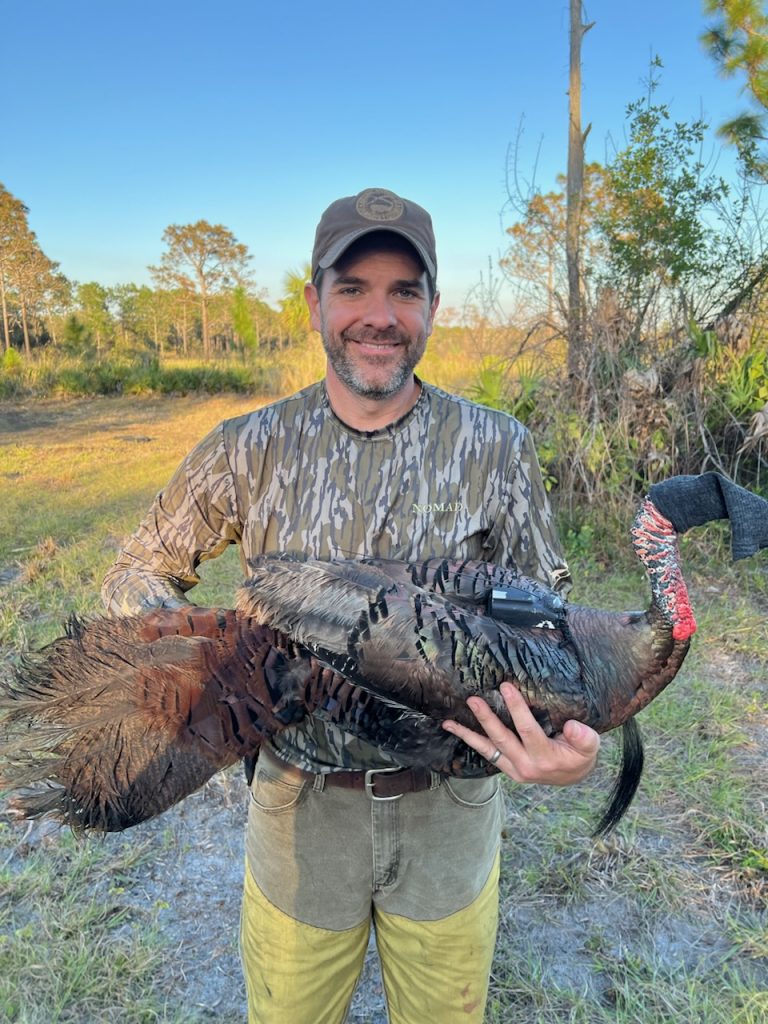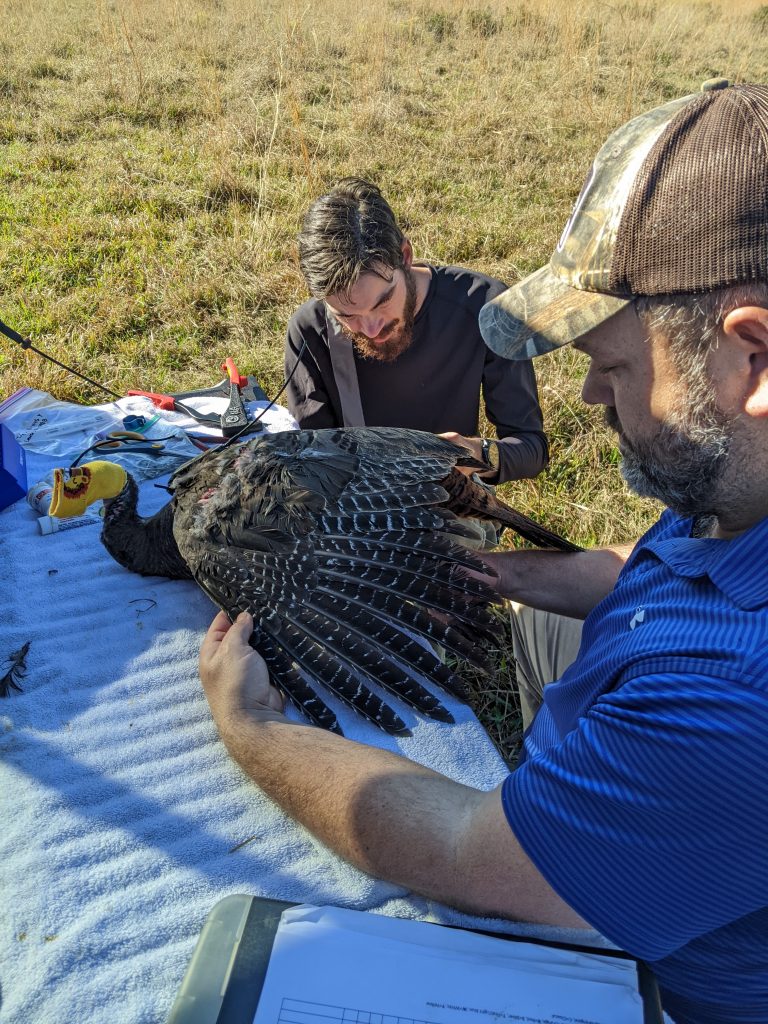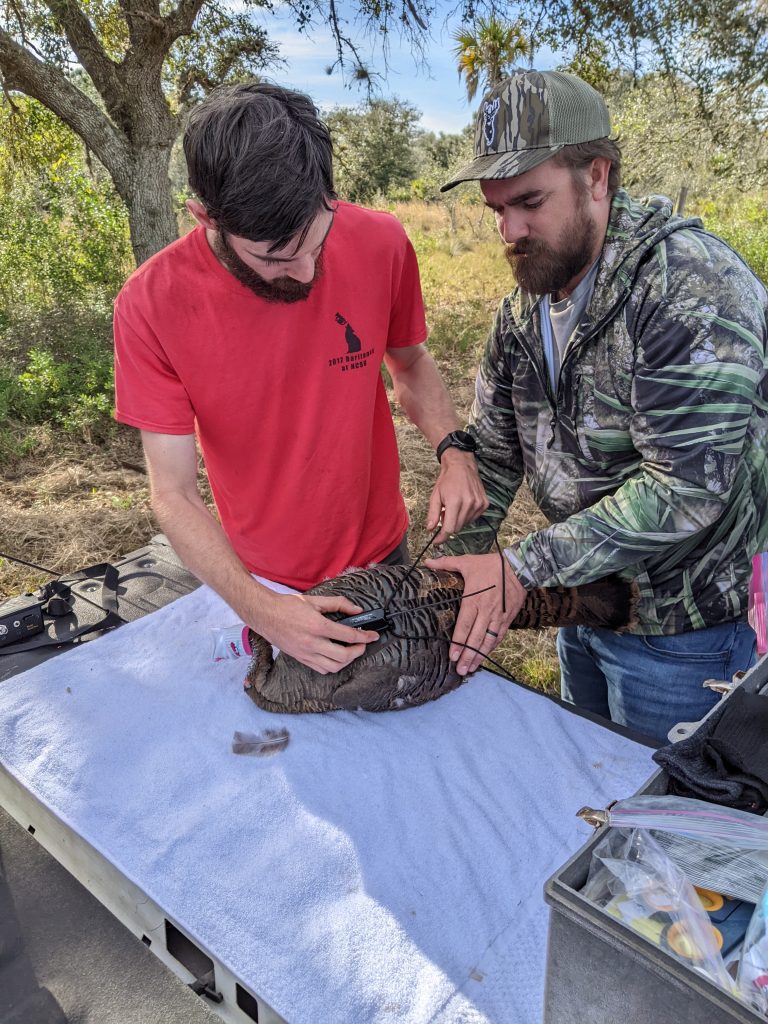Osceola Research Update: NWTF Staff, Volunteers Assist with Ongoing Study
Work is continuing in South Florida with an Osceola wild turkey research project as a group of researchers from the University of Florida, NWTF staff and volunteers and Florida Fish and Wildlife Conservation Commission staff continue to trap and release wild turkeys as part of the study.

The study is funded, in part, by both the NWTF’s National RFP program and the NWTF Florida State Chapter’s Super Fund.
Last week, the team caught 15 birds, a mix of toms and hens, across two sites, bringing researchers closer to their annual goal. The team is still seeking to trap 19 hens and 21 gobblers to gather data from and outfit with a GPS-VHS backpack to accomplish the goal for the year.

“All birds are weighed, swabbed and have blood drawn for disease detection, in addition to being tagged,” said Ricky Lackey, NWTF district biologist for Florida, Georgia and South Carolina. “The team still has work to do, but we are getting closer to reaching our goal for the year.”
The NWTF has supplied funds to support additional GPS tags to increase hen sample sizes on two hunted areas, add automated recording units to increase sampling intensity and provide salary to support additional staff to deploy equipment, monitor marked birds and collect and process data.

Overall, the project seeks to enhance the success of nests and poult survival by better understanding hens' choices in habitat selection, nesting chronology and nest site selection. Learning about these factors is pivotal in developing effective future habitat management practices. The project also aims to determine the prevalence of LPDV (Lymphoproliferative disease virus) and REV (Reticuloendotheliosis virus) in adult hens and understand its impact on the Osceola wild turkey population.
Moreover, the turkeys that were captured last week were in areas where the research team has set up automated sound recording units, which capture the gobbling sounds of Osceola wild turkeys and allow researchers to understand better how hunting affects gobbling chronology in the early and late hunting seasons. Studying gobbling in hunted areas and comparing it to gobbling in regions with less and/or no pressure, provides insight into the impacts of harvest management strategies and season structure on wild turkey populations.
This research will continue through 2025.
This project is one of 10 new research projects across nine states the NWTF is funding, with $582,374 invested among these vital projects. These projects are part of a nearly $9 million investment into wild turkey research in 2023, supported by the NWTF and its partners.